'FAS't inhibition of malaria
- PMID: 15315475
- PMCID: PMC1133732
- DOI: 10.1042/BJ20041051
'FAS't inhibition of malaria
Erratum in
- Biochem J. 2004 Dec 15;384(Pt 3):655
Abstract
Malaria, a tropical disease caused by Plasmodium sp., has been haunting mankind for ages. Unsuccessful attempts to develop a vaccine, the emergence of resistance against the existing drugs and the increasing mortality rate all call for immediate strategies to treat it. Intense attempts are underway to develop potent analogues of the current antimalarials, as well as a search for novel drug targets in the parasite. The indispensability of apicoplast (plastid) to the survival of the parasite has attracted a lot of attention in the recent past. The present review describes the origin and the essentiality of this relict organelle to the parasite. We also show that among the apicoplast specific pathways, the fatty acid biosynthesis system is an attractive target, because its inhibition decimates the parasite swiftly unlike the 'delayed death' phenotype exhibited by the inhibition of the other apicoplast processes. As the enzymes of the fatty acid biosynthesis system are present as discrete entities, unlike those of the host, they are amenable to inhibition without impairing the operation of the host-specific pathway. The present review describes the role of these enzymes, the status of their molecular characterization and the current advancements in the area of developing inhibitors against each of the enzymes of the pathway.
Figures
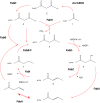
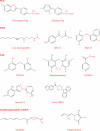


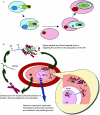

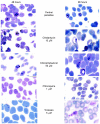
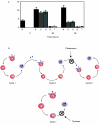
References
-
- World Health Organization. The World Health Report 2002: reducing risks, promoting healthy life. 2002. - PubMed
-
- World Health Organization. The World Health Report 1995. 1995.
-
- Ramya T. N. C., Surolia N., Surolia A. Survival strategies of the malarial parasite Plasmodium falciparum. Curr. Sci. 2002;83:818–825.
-
- Baird J. K. Host age as a determinant of naturally acquired immunity to Plasmodium falciparum. Parasitol. Today. 1995;11:105–111. - PubMed
-
- Robert A., Benoit-Vical F., Dechy-Cabaret O., Meunier B. From classical antimalarial drugs to new compounds based on the mechanism of action of artemisinin. Pure Appl. Chem. 2001;73:1173–1188.
Publication types
MeSH terms
Substances
LinkOut - more resources
Full Text Sources
Other Literature Sources
Medical
Research Materials
Miscellaneous

